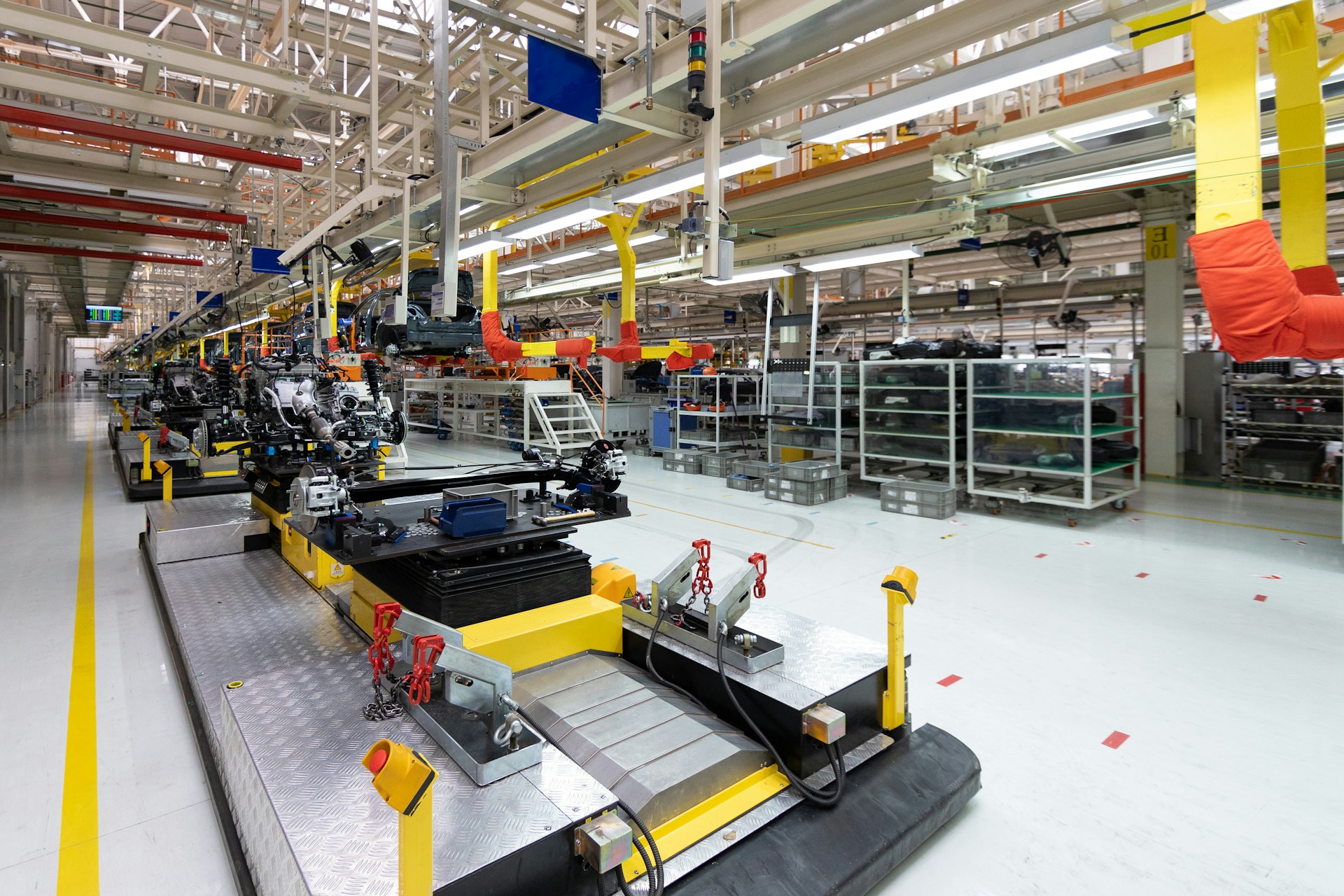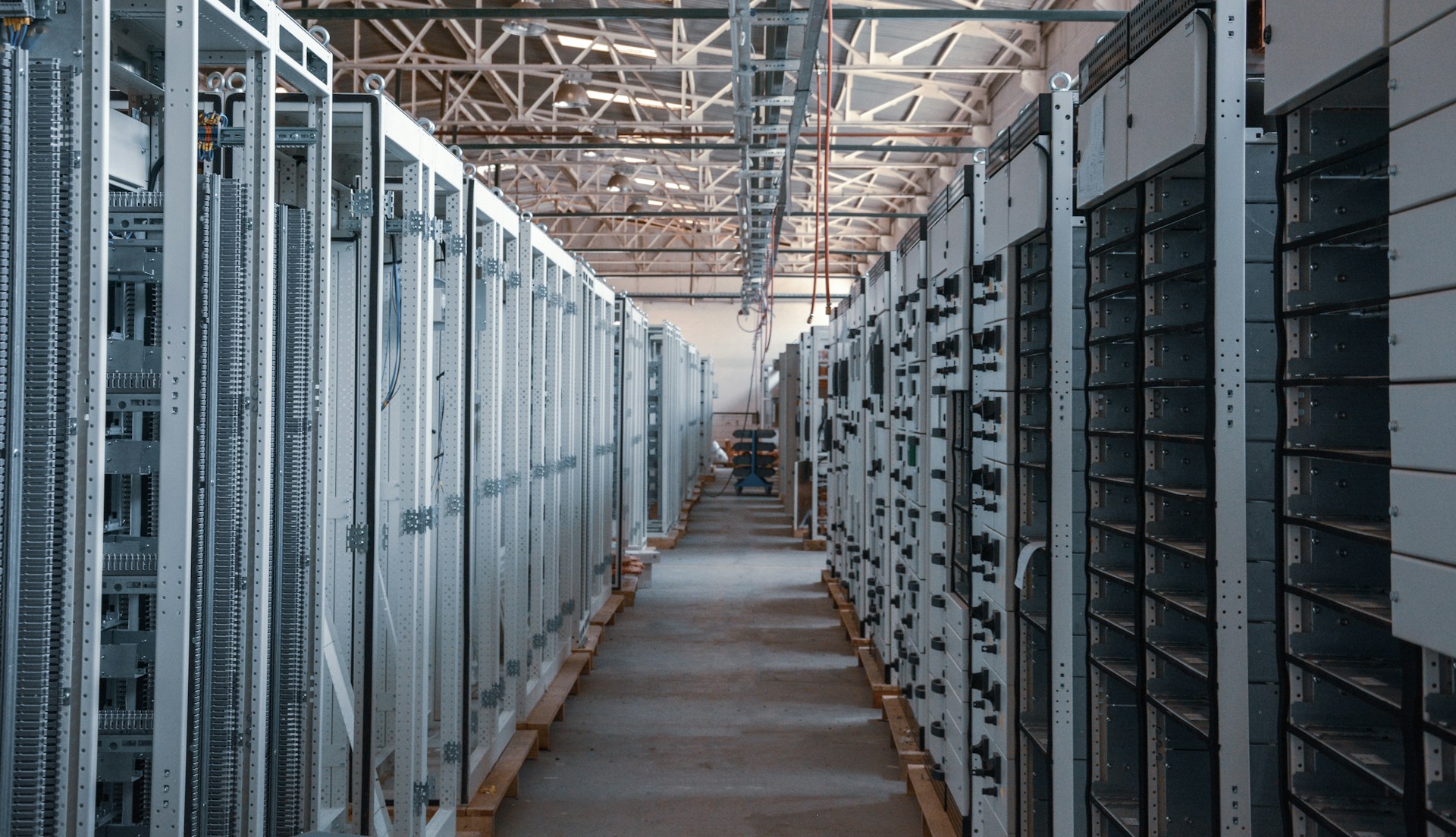When it comes to fire safety, having a reliable fire alarm system is crucial for protecting your home or business. You want to ensure that you have access to top-notch service to keep your system functioning optimally. Finding fire alarm system service near you means you can quickly address any maintenance needs, ensure compliance with safety regulations, and protect what matters most.
Local providers understand the unique needs of your community and offer tailored solutions. Companies like Titan Alarm in Tucson provide commercial fire alarm system services designed specifically for regional requirements. With a trusted service nearby, you can schedule inspections, repairs, and upgrades conveniently.
Investing in fire alarm services is not just a regulatory obligation; it’s a foundational step in safeguarding your premises. Knowing that expert help is just around the corner gives you peace of mind, allowing you to focus on what you do best while ensuring your fire safety measures are always up to standard.
Understanding Fire Alarm System Services
Fire alarm systems are essential for protecting your property and ensuring the safety of its occupants. These systems not only detect and alert occupants to dangers but also integrate with other fire protection methods to provide a comprehensive safety strategy.
Types of Fire Alarm Systems
You will encounter various types of fire alarm systems, each designed to meet specific needs. The main categories include conventional, addressable, and wireless systems.
- Conventional Systems: Best for smaller properties, these systems group detectors by zones, making it easier to locate the source of an alarm.
- Addressable Systems: Ideal for larger facilities, this type identifies the exact location of a fire hazard, improving response time and accuracy.
- Wireless Systems: These use radio signals for communication, offering flexibility in installation without the need for extensive wiring.
Choosing the right type depends on your property's size, layout, and specific fire protection needs.
How Fire Alarm Systems Protect Your Property
Fire alarm systems safeguard your property through early detection and rapid response. They monitor the environment for smoke or heat, ensuring occupants are alerted promptly.
When a potential fire is detected:
- Alarm Activation: The system triggers audible and visual alarms to alert occupants.
- Notification to Authorities: Many systems connect to fire departments, providing immediate notification for quicker response.
- Integration with Suppression Systems: In some setups, alarms can activate suppression systems like sprinklers, helping to control flames before they spread.
Your fire alarm system ultimately acts as the first line of defense in your fire protection strategy, promoting life safety and minimizing damage.
Key Components and Technologies
Fire alarm systems comprise several critical components and technologies that ensure effective operation.
- Smoke Detectors: These devices identify smoke particles, triggering alarms for immediate action.
- Heat Detectors: Ideal for areas where smoke detectors may not be practical, these sensors activate based on temperature changes.
- Control Panels: The brain of the system, control panels process signals from detectors and manage alarm responses.
- Notification Devices: Bells, horns, and strobe lights alert occupants and guide them to safety.
Investing in a reliable fire alarm system not only enhances life safety but also protects your assets and complies with local regulations, particularly in the greater Houston area.
Choosing a Licensed Fire Alarm Service Provider
Selecting a licensed fire alarm service provider is crucial for ensuring safety and compliance. You'll want to prioritize companies that meet state licensing requirements and employ certified technicians and engineers. This section will cover key factors to consider when making your choice.
State Licensed Fire Alarm Company
When choosing a fire alarm company, confirm that they hold a valid state license. A licensed provider demonstrates compliance with local regulations and standards. In the greater Houston area, look for a company that is recognized by the state fire marshal.
Verify the license details through state resources to ensure it is current. Working with a licensed fire alarm company provides peace of mind, knowing they are legally authorized to perform installations, inspections, and maintenance. Additionally, a licensed provider is often more reputable and accountable than unlicensed companies, ensuring better service quality.
Certified Fire Alarm Technicians and Engineers
It's essential to engage fire alarm companies that employ certified technicians and engineers. Certified professionals have undergone rigorous training and assessment to ensure they meet industry standards. They’re knowledgeable about various fire alarm systems and their requirements.
Certified technicians can handle installations, inspections, and any necessary repairs efficiently. When reviewing potential companies, inquire about their team's qualifications. Look for certifications from recognized institutions such as NICET (National Institute for Certification in Engineering Technologies).
This ensures that the technicians stay updated on the latest technologies, codes, and safety practices, which is vital for effective fire alarm systems.
Evaluating Fire Alarm Companies Near You
When evaluating fire alarm companies in your area, consider a few critical factors. Start by checking their reputation through online reviews and testimonials. Positive feedback from past clients is a strong indicator of reliability.
Next, assess their range of services. A comprehensive fire alarm service provider should offer installation, inspection, and maintenance. Additionally, inquire about response times and 24/7 support for emergencies. This ensures you receive prompt assistance when it's needed most.
Finally, ask for quotes and compare pricing, but remember that the cheapest option may not provide the best quality. Prioritize value over cost to ensure effective fire safety measures for your property.
Inspection, Testing, and Maintenance Practices
Maintaining an effective fire alarm system is crucial for safety and compliance. Regular inspection, testing, and maintenance practices ensure that your system functions correctly and adheres to regulatory standards.
Routine Scheduled Tests and Inspections
Routine scheduled tests are essential for ensuring that your fire alarm system is operational. These tests should be conducted at specific intervals, typically monthly or quarterly, depending on local regulations and system requirements.
During these inspections, you should verify the functionality of fire alarms, smoke detectors, and notification devices. It’s important to check for any obstructions around detection devices that could affect performance.
Additionally, visual inspections should include checking for clear access to panels and batteries. Engaging a licensed technician for these routine checks can help identify potential issues before they compromise safety.
Fire Alarm Testing and Compliance
Testing your fire alarm system is not only a best practice but also a legal requirement. You must perform comprehensive tests at least annually to ensure compliance with use regulations established by local fire marshals.
These tests involve simulating alarm conditions and checking alarm response times. You'll also need to evaluate the system's connected services, such as alarm monitoring and emergency communications.
Documenting test results is vital, providing proof of compliance if required by authorities. Proper adherence to testing protocols minimizes risks and protects your property and occupants.
NFPA Standards and Local Codes
Familiarizing yourself with NFPA standards and local codes is critical for effective fire alarm system maintenance. NFPA 72 outlines the specific requirements for fire alarm systems, including installation, testing, and maintenance.
Your fire alarm system must comply with local codes that may have additional requirements or variations from national standards. Regular consultations with professionals can ensure your system meets these code mandates.
Understanding these regulations also helps you prepare for inspections by the fire marshal, ensuring that your facility maintains a solid fire safety posture.
Documentation and Reporting
Documentation serves as your best defense in demonstrating compliance and diligence regarding fire alarm system maintenance. You should maintain accurate records of inspections, tests, and any corrective actions taken.
Include details such as dates, technician names, results of tests, and any noted deficiencies. This information is not only valuable for compliance but also for identifying trends over time.
Make sure that your records are organized and readily accessible in case of audits or inspections by local authorities. Keeping thorough documentation protects your interests and enhances fire safety awareness.
Installation and Repairs of Fire Alarm Systems
Proper installation and timely repairs of fire alarm systems are crucial for ensuring safety. You need a reliable system that is installed correctly and maintained to protect your property effectively.
Professional Fire Alarm Installation
When you decide to install a fire alarm system, choosing a professional service is essential. Proper installation ensures that all components function effectively and adhere to local safety regulations.
A licensed technician will assess your property to determine the best locations for smoke detectors, control panels, and alarm devices. They will also provide guidance on the types of systems available, such as conventional or addressable alarms, tailored to your needs.
Furthermore, a professional installation typically includes a thorough review of the system's functionality. This can range from testing alarm sounds to ensuring connections to emergency services work seamlessly.
Fire Alarm Repairs and Upgrades
Maintaining your fire alarm system is just as vital as the initial installation. Regular inspections can help identify issues before they become serious problems. You should schedule routine maintenance at least once a year.
If your system shows signs of malfunction—such as false alarms, non-responsive alarms, or battery issues—prompt repairs are necessary. Addressing these concerns quickly helps to avoid compromising your safety.
Upgrading your fire alarm system can also enhance its efficiency. Consider integrating smart technology that allows remote monitoring, which lets you keep track of the system from anywhere.
San Francisco Fire Alarm Repairs
If you are located in the San Francisco area, specialized repair services cater to your fire alarm needs. Local technicians understand the unique building codes and safety regulations in your region, ensuring compliance with all standards.
Their expertise includes not just repairs, but also proactive servicing and consultations to optimize your fire alarm system's performance. Quick response times are vital in emergencies, so having a local service is beneficial.
Overall, by utilizing specialized San Francisco fire alarm repair services, you secure peace of mind knowing that your system is in expert hands, ready to protect your space whenever necessary.
Fire Alarm Monitoring and Emergency Response
Effective fire alarm monitoring plays a crucial role in ensuring your safety and the quick response of emergency services. This section addresses essential components such as central station solutions, communication systems, and coordination with emergency responders.
Central Station Monitoring Solutions
Central station monitoring is a vital component of fire alarm systems. These stations continuously oversee your fire alarm system, ready to alert local authorities at any sign of trouble.
When your alarm is triggered, the central station receives an immediate notification. Trained professionals then assess the situation, determine the appropriate response, and contact emergency services if necessary. This process can significantly reduce response times, potentially saving lives and property.
In the greater Houston area, numerous companies provide reliable central station monitoring services that are FDNY compliant and UL certified. Choosing a trusted provider ensures that your fire monitoring system operates effectively around the clock.
Communication Systems for Alarms
A well-designed communication system enhances the efficiency of your fire alarm monitoring. This system ensures that alarms are transmitted clearly and quickly to the central monitoring station.
Modern systems use a combination of landlines, cellular networks, and internet connections to guarantee redundancy. In case one communication method fails, the system can still operate through alternative channels.
You should consider systems that incorporate both digital and analog signals. Digital signals offer advanced features, while analog systems ensure compatibility with older components. This versatility can be crucial in maintaining an efficient fire alarm system.
Coordination with Emergency Services
Effective coordination with emergency services is paramount for ensuring optimal response during a fire alarm event. Your fire alarm monitoring service should facilitate seamless communication with local fire departments and other first responders.
Upon receiving an alarm, central stations typically have pre-established protocols for contacting emergency services in your jurisdiction. This ensures that the right personnel are dispatched quickly.
Additionally, some monitoring solutions allow you to input specific details about your property. This can include the layout, access points, and instructions for emergency personnel. Providing this information upfront helps responders act swiftly and effectively when every second counts.
Integrating Fire Protection Systems
Effective fire protection goes beyond just installing a fire alarm system. By integrating various components such as sprinkler systems, fire extinguishers, and fire safety strategies, you create a comprehensive defense against fire hazards in your property.
Integration with Sprinkler and Suppression Systems
Integrating your fire alarm system with sprinkler and fire suppression systems enhances your building's safety. Sprinkler systems automatically activate in response to heat, working in conjunction with alarms to notify occupants promptly.
When your fire alarms detect smoke or heat, they can trigger sprinklers to deploy immediately. This dual response minimizes fire damage and helps control flames until emergency services arrive. In Houston, using these interconnected systems saves lives and offers peace of mind.
Use of Portable Fire Extinguishers
Portable fire extinguishers are a vital component of your overall fire protection strategy. They allow you to tackle small fires before they escalate, providing an immediate response in critical moments.
Positioning these extinguishers strategically throughout your property ensures they are accessible during emergencies. Regular inspections and maintenance are essential to ensure they function effectively when needed. Training staff on how to use them properly can significantly enhance your fire response capabilities.
Combining with Fire Safety Strategies
Your fire alarm system integration should also include broader fire safety strategies. Conducting regular fire drills ensures everyone knows evacuation routes and procedures.
Incorporating routine inspections and maintenance for all fire safety equipment is crucial. This proactive approach can identify potential issues before they become hazardous. Additionally, educating employees about fire risks and prevention techniques strengthens your overall safety culture.
By combining these elements, you create a robust fire protection network designed to safeguard your property and its occupants.
Frequently Asked Questions
In this section, you'll find detailed answers to common inquiries about fire alarm system services. These questions cover essential criteria for service selection, maintenance schedules, legal responsibilities, and indicators that your system may need attention.
What are the criteria for choosing the best fire alarm system service provider?
When selecting a fire alarm system service provider, consider their experience and qualifications. Look for certifications, insurance coverage, and positive customer reviews.
Additionally, evaluate their knowledge of local codes and regulations. A provider familiar with the specific requirements of the greater Houston area will ensure compliance and reliability.
How often should residential fire alarm systems be serviced for optimal performance?
Residential fire alarm systems should be serviced at least once a year. This annual inspection helps identify potential issues and ensures that all components function correctly.
If you experience frequent false alarms, it may be prudent to schedule more frequent maintenance checks. Regular servicing can enhance the longevity of your system.
Can electricians perform maintenance and repairs on fire alarm systems?
While some electricians may have training on fire alarm systems, it is essential to hire a technician with specific expertise in fire safety systems. These specialists understand the nuances of fire alarms, ensuring proper functionality and adherence to safety standards.
Confirm their credentials and experience before proceeding with any maintenance or repair work.
What should be included in a professional fire alarm system service?
A comprehensive service should include a thorough inspection of all system components, including detectors, alarms, and control panels. The technician should test each component to ensure correct operation.
Additionally, they should check the battery backups and replace any expired batteries, ensuring your system is prepared for emergencies.
Who is legally responsible for maintaining a fire alarm system in a residential building?
In residential buildings, the property owner is typically responsible for ensuring that the fire alarm system is well-maintained. If you are renting, familiarize yourself with your lease agreement, as responsibilities may vary.
Ensuring proper maintenance not only complies with legal requirements but also enhances the safety of all residents.
What are the common signs that a fire alarm system requires servicing?
Several signs indicate that your fire alarm system needs servicing. Frequent false alarms, intermittent operation, or failure to respond during testing are critical warning signs.
Additionally, any physical damage to the system or warning lights indicating issues should be addressed promptly to maintain effective fire safety.
.svg)



.svg)


.svg)



